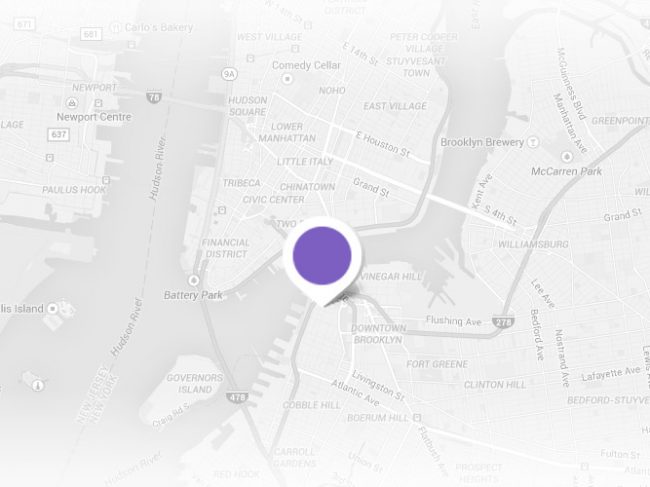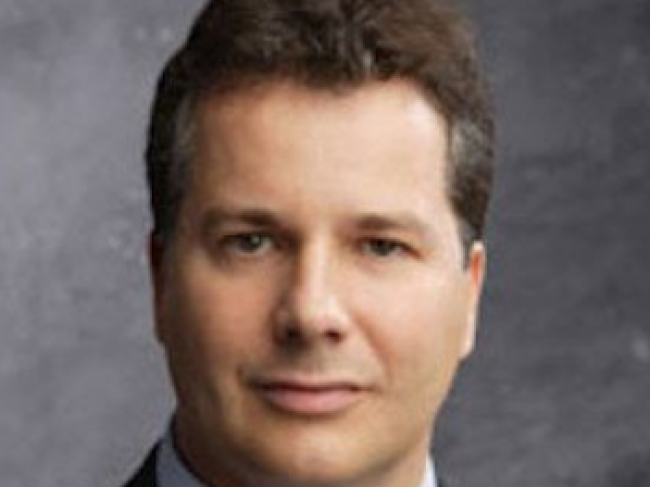New York DWI law is unique, in that it gives all motorists a qualified right to consult with a DWI lawyer before deciding whether to take or refuse the chemical test. (It is "qualified" because those arrested have a right to call and obtain advice from a DWI lawyer, but the police do not have to wait for that lawyer to show up.) New York DWI lawyers know that taking late-night calls is simply part of the job description. It is critical to consult with a qualified New York DWI attorney before deciding on this issue since taking or refusing the test is an important and complicated decision following a drunk driving arrest.
New York DWI Laws
New York DWI FAQ
Can I Refuse to Take the Chemical Test in New York?
Can NYPD Take My Car if I'm Arrested for DWI?
There has been much publicity about the New York City Police Department's policy of seizing the cars driven by allegedly drunk drivers. Under the New York City Administrative Code, law enforcement authorities can seize property if it can be shown to be the proceeds or instrumentality of a crime. The theory behind such seizures is that the car is the instrumentality of DWI. Without it, there can be no crime. While considered "civil" in nature, the punitive effect of such a seizure can be devastating. A car that is worth $50,000.00 or more can be seized and ultimately forfeited to the NYPD even though the maximum monetary criminal sanction that can be imposed is a $1,000.00 fine. What's worse is that since the proceeding is strictly civil, it doesn't matter if your criminal case is dismissed or even if you are acquitted at trial. The NYPD Legal Department can try you again, this time in civil court, where the burden of proof is much lower. Instead of a fine or jail, the result can be the loss of your vehicle.
A recent decision of the United States Court of Appeals for the Second Circuit, which covers all of New York, gives motorists significant additional rights to contest the immediate seizure of their vehicle. The Court has ordered that "promptly after their vehicles are seized... (motorists) must be given an opportunity to test the probable validity of the City's deprivation of their vehicle..." while the case is pending. In other words, the City or other government authority can just take your car any more and hold it indefinitely while the case drags through the court system. Now, you are given the chance to get your car back shortly after it's seized by showing the police did not have the right to take it. For example, if you weren't drunk at the time of the seizure or if the car belonged to an "innocent third party", you could show that to a judge or hearing examiner and get the car back. This is a significant improvement upon what had previously been a difficult situation for the motorist. Now, you have the chance to contest the seizure promptly after it happens and show that you're entitled to your car back. While the appellate court left it to the lower courts to decide exactly how and when this opportunity is to be afforded to motorists, it opens up a new area for litigation that can be used effectively to get people their cars back.
The United States Supreme Court and Congress have carved out certain limited defenses in property forfeiture cases. If the car driven belongs to an "innocent third party" who had no cause to believe you would be driving it while intoxicated, there is a valid defense to the forfeiture proceedings. In such cases, the outcome hinges on whether the owner had knowledge of the driver's intention. In a case where the owner doesn't give permission to the driver or the driver essentially "steals" the car by taking it without express consent, there is a good defense. Or, in a case where the owner has no reason to know the driver will be out drinking, the owner should get the vehicle back. Cases, where you are driving your spouse's car, are more problematic, especially where he/she knows you have a prior conviction for DWI. Spouses will be deemed to know more about the driver's intent than a stranger or someone without knowledge of the driver's record for DWI, if any.
The NYPD must follow a strict procedure in order to initiate a forfeiture action. Following seizure of the car and the arrest of the driver, the owner will typically make a demand for the car. This must be done at the place designated by the NYPD for such demands, usually at the pound located in Whitestone, Queens. To make the demand proper, the owner must present proof of ownership, a certificate of disposition from the Court showing that the criminal case is over and the District Attorney's signed, written consent to release the car, stating that it is no longer needed in the criminal case. This procedure is strictly adhered to and if not followed precisely, your demand will be deemed improper and not honored to the extent required. Most likely, upon presenting these documents to the property clerk, the owner will be given a form with a number in the top right-hand corner that starts with the letter "F". This is the identifying number to be used when referring to the car demanded. Any discussions with the NYPD Legal Bureau will be preceded by a demand for the "F number."
Procedurally, the NYPD must then sue you for forfeiture of your car within a specified time period or they must honor your demand for its return. This means that you must be personally served with a summons and complaint that names you, the owner, and possibly the driver (as the "beneficial owner") as the defendant(s) and the Property Clerk of the New York City Police Department as the plaintiff. If the demand you made at the Property Clerk's office is not technically proper, the time limit will not start and you will be waiting forever for your car or for the opportunity to try to get it back.
What Can I Expect After a New York DWI?
DWI arrests in New York will trigger two separate cases for those accused of driving while impaired. The first is the DWI case in criminal court; the second is the DMV case, where the New York DMV is empowered to suspend the driving privileges of those accused of DWI or DWAI (driving while abilities are impaired by alcohol).
Can I Still Drive if I Have Been Arrested for DWI in New York?
The New York State Department of Motor Vehicles (DMV) is empowered to suspend the driving privileges of those accused of DWI or DWAI (driving while abilities are impaired by alcohol). You can get a conditional license that allows you to drive to work, medical appointments, and school if you're a student. A conditional license is issued to those who attend a NY DMV-approved Impaired Driver Program (IDP).
What Can I Expect From a New York DWI Criminal Case?
New York DWI cases (also known as DUI – Driving Under the Influence) can be brought under one of two theories: either a violation of the DWI "per se" law (which is based only on alcohol level, not driving impairment), or under a traditional "common law" theory (where the prosecution must prove that the driver is intoxicated).
Intoxication, for the purpose of Vehicle and Traffic Laws, is a condition where the motorist lacks the necessary physical and mental skills to operate a motor vehicle as a reasonable and prudent driver. New York DWI arrests based on the common law theory do not require any measurement of BAC; they may be based entirely on the opinion of the arresting officer.
DWI cases can be "aggravated" (with harsher punishment and penalties) where the BAC is .15 or more, where there is a traffic accident, refusal to take the chemical test, or any other attempt to evade police or flee the scene of a DWI accident.
What Are the Punishments for a New York DWI?
DWI punishment in New York will depend upon whether the drunk driving arrest is for a misdemeanor or a felony. (A misdemeanor DWI / DUI case is one that can be punished by up to one year in jail; a felony drunk driving arrest may be punished for more than a year in state prison.)
A first-offense Driving While Intoxicated (DWI) case is a misdemeanor. However, if there has been a prior DWI or drunk driving conviction within 10 years of the arrest, the new charge is a felony. The 10-year period is calculated from the date of conviction of the prior DWI case, through the date of arrest for the new DWI case.
DWI arrests can result in a variety of punishments; the sentence given for a drunk driving conviction will depend upon the particular DWI charge, and whether there are aggravating or mitigating factors.
New York DWI Penalties in criminal court are as follows:
Driving While Impaired by Alcohol (VTL Section 1192.1):
Considered a non-criminal "traffic infraction" which does not leave the driver with a criminal record, this is the least serious DWI / DUI offence. The penalties can range from a minimum fine of $300.00 and a maximum fine of $500.00 to up to 15 days in jail or both. However, if the driver has already been convicted of one prior DWI / DUI offense in New York, the penalty is increased to a minimum fine of $500.00 and a maximum fine of $750.00 or 30 days in jail or both. If the driver has been convicted of two or more DWI offenses in New York, then the classification of this DWI offense is changed to a misdemeanor (which does give the driver a criminal record) with a minimum fine of $750.00 and maximum of $1,500.00, plus up to 180 days in jail or both. A mandatory 90-day suspension of the driver's license to operate a vehicle will be imposed if the motorist has no prior DWI convictions. The suspension is for 6 months where the motorist does have a prior DWI conviction. However, NY courts are often willing to postpone that suspension for 20 days in order for the motorist to petition the Department of Motor Vehicles for a restricted license that will permit them to drive to and from work only.
Driving While Intoxicated (VTL Section 1192.2):
This is the standard, garden-variety drunk driving offense that is typically charged when a motorist is arrested for DWI. It is considered a misdemeanor and does constitute a crime, giving the driver a criminal record. The minimum penalty, assuming no prior convictions for DWI as a misdemeanor, is a minimum fine of $500.00 and a maximum fine of $1,000.00 or both. A term of no more than one year in a NY prison is authorized. The mandatory license revocation is for 6 months, with the same provision for a restricted license through DMV as outlined above.
New York DWI as a Felony Offense:
When a person has already been convicted of DWI as a misdemeanor (as opposed to Driving While Impaired, a "traffic infraction") the next DWI is much more serious. If the second DWI case is for Driving While Intoxicated, most commonly brought under VTL Section 1192.2, the new charges are raised to the level of a class "E" felony. The penalties increase as well. The minimum fine is $1,000.00 with a maximum fine of $5,000.00 possible. The motorist is also more likely subject to a period of probation for 5 years or may even be incarcerated for a period of up to one and one-third to four years. In such cases, NY courts can combine the penalties imposed, depending on the circumstances. A term of 6 months incarceration with the balance of 5 years spent on probation along with the fine, license revocation, and drinker/driver program is possible.







